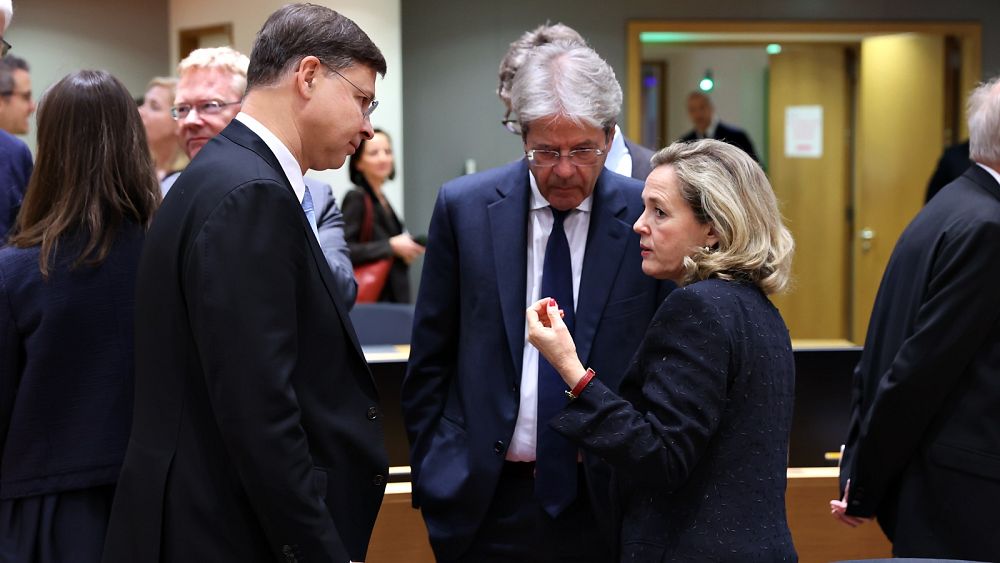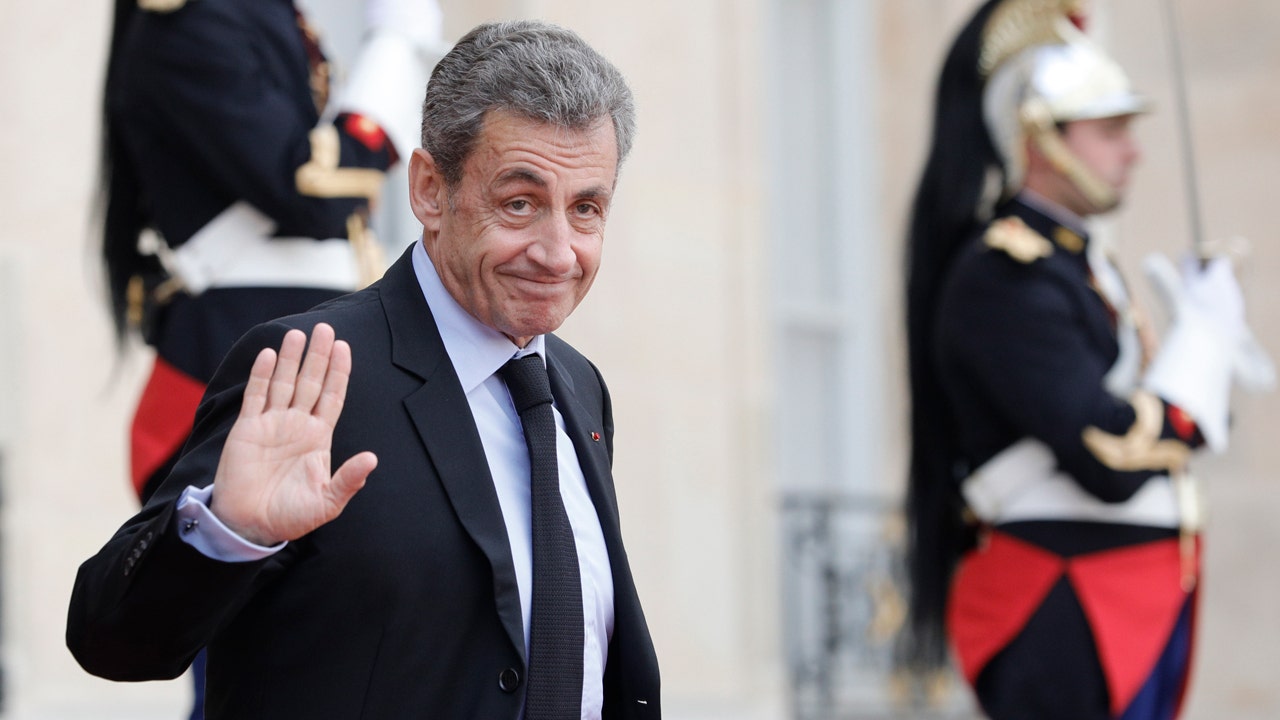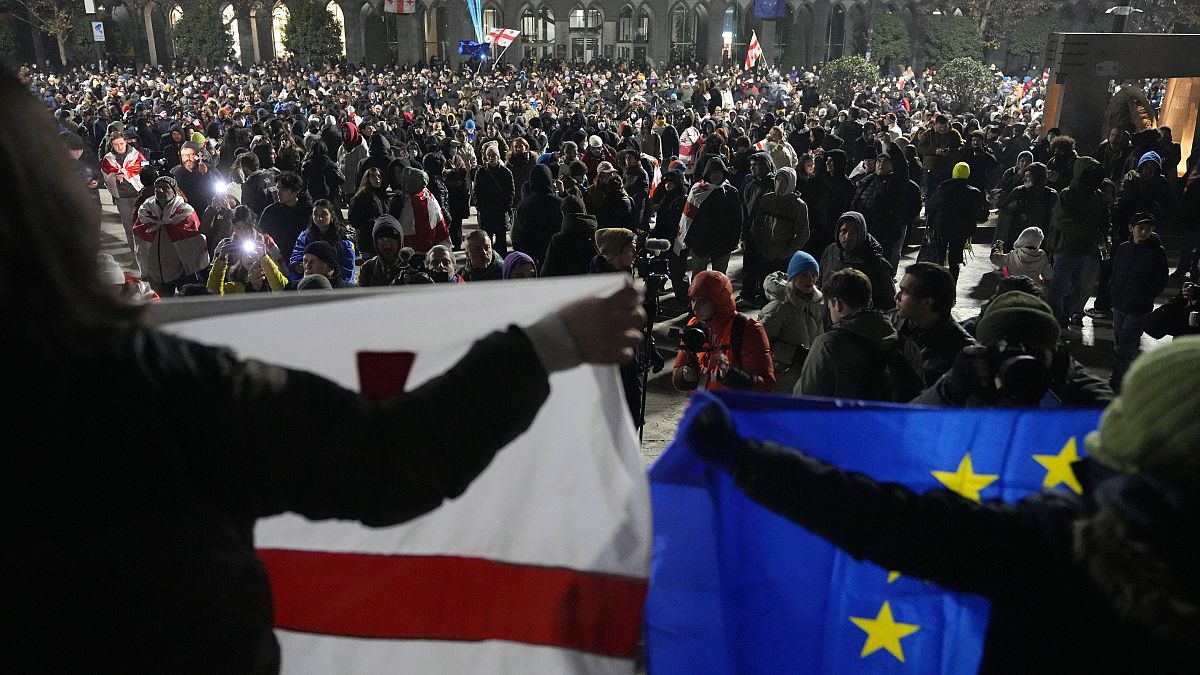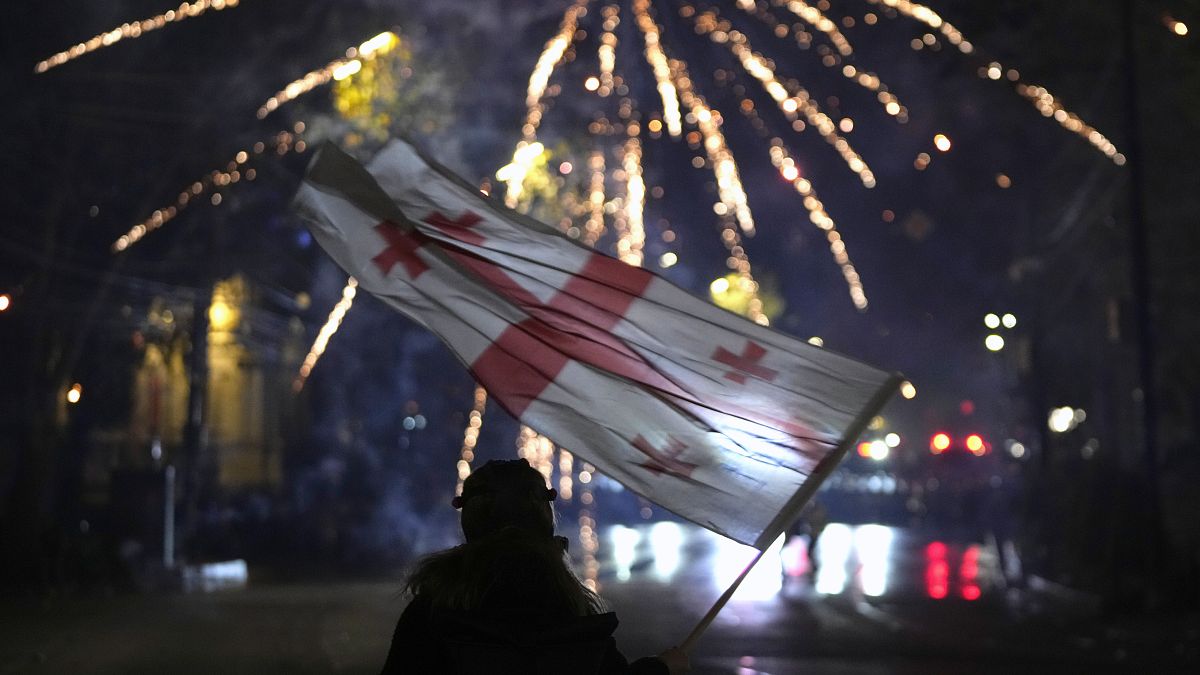World
EU makes progress on new fiscal rules pending Franco-German deal

Economic and finance ministers of the European Union made on Thursday significant progress on the reform of the bloc’s fiscal rules. But the final push depends on a Franco-German compromise.
An extraordinary meeting has been pencilled for later this month, hoping talks between Paris and Berlin will have borne fruit by then.
The two heavyweight capitals have embraced opposing views in the months-long debate, which needs to be resolved by year’s end to allow member states to design their next budgets under the new rules. Failure to do so will lead to the reactivation of the old norms, suspended since the onset of the COVID-19 pandemic.
France and Germany have in recent days intensified bilateral contacts to hash out their differences, raising expectations that a breakthrough will soon be in sight. French Finance Minister Bruno Le Maire met earlier this week with his German counterpart, Christian Lindner, in Paris and the two will get together again in Berlin in the coming days.
The talks focus on the most divisive issues of the fiscal overhaul, namely the numerical safeguards to guarantee an annual reduction of debt and deficit levels. France has so far resisted this idea, arguing that automatic and uniform norms would be counterproductive and potentially constrain economic growth. But Germany has firmly held its ground, backed by a group of member states, including the Netherlands, Austria, Sweden and Denmark, who want to ensure public spending is effectively kept in check.
The latest “landing zone” circulated by Spain, the country that currently holds the EU Council’s rotating presidency, left blank the percentage points of the debt-reduction and deficit-controlling mechanisms, suggesting this will be the very last hurdle to be jumped.
“It is progress that the idea of safeguards and benchmarks is acknowledged with regard to the debt-to-GDP ratio and the annual deficit. But what has to be considered is the level of ambition,” Lindner said on Thursday morning, before heading to the ministerial meeting in Brussels. “So now it is about numbers, not only instruments. I’m optimistic but much more work has to be done.”
“We’re in an open debate among partners and friends. It’s not about deadlines or red lines – it’s about horizons,” he added.
Le Maire described the Franco-German mood as “very positive and constructive” and said bilateral discussions were going “in the right direction.” He underlined the final outcome should bring forth fiscal rules that are “credible” and “solid” and leave enough financial space for countries to invest in high-tech and the green transition.
“What is at stake behind those negotiations is the whole credibility of the European Union,” Le Maire said. “Facing economic difficulties (and) geopolitical risks, there is a need to come to an agreement by the end of 2023, we cannot wait (until) 2024 with the perspective of the European elections.”
Two more meetings to go
What is on the table today is the reform of the Stability and Growth Pact, the fiscal rules that have guided the bloc’s finances since the late 1990s.
Under the present framework, member states are required to keep their budget deficits under 3% of gross domestic product (GDP) and their public debt levels below 60% in relation to GDP — thresholds that many governments exceed after years of intense spending to cushion a succession of overlapping crises.
In the legislative proposal presented in April, the European Commission kept untouched the 3% and 60% targets, which some economists consider arbitrary and obsolete, but made considerable alterations to the way in which the two figures should be met.
Each member state would be asked to design a mid-term fiscal plan to cut down its deficit levels at a credible pace and put public debt on a “plausible downward path”. The country-specific blueprints would be first negotiated between the European Commission and the capitals, and later approved by the EU Council.
The fiscal adjustments necessary to meet – or at least head towards – the 3% and 60% marks would be carried out over a period of four years and could be extended to seven years in exchange for further reforms and investments.
While the combination of fiscal sustainability and national ownership has been welcomed across the board, it has not been enough to speed up negotiations: capitals have spent the last months haggling over provisions of extreme technicality, including the debt-reduction safeguards.
Spain initially targeted Thursday’s meeting as the desired date to seal a deal on a revised legislative proposal. But following a series of “50 meetings and contacts” with the other 26 member states, the presidency opted instead to table a “landing zone” to move forward the discussions, said Nadia Calviño, Spain’s acting economy minister.
“Today we see there is agreement on the core elements and mechanism of the new fiscal rules,” Calviño said after the ministerial meeting.
Building on the “significant progress” made on Thursday, she explained, the Spanish presidency will translate the working document into a proper legal proposal, which will then be debated by ministers in an extraordinary meeting later this month.
Ideally, Calviño noted, the definitive deal will be sealed on 8 December, when economy and finance ministers are expected to gather again. Any possible Franco-German compromise will be “integrated” into the presidency’s work, she added.
“Our assessment is that we may need two (more meetings) to finalise and reach an agreement on the legal text,” Calviño said.
The Council’s potential agreement will then need to undergo negotiations with the European Parliament before coming into force sometime in early 2024.

World
The Year in Pictures 2024: Far From Ordinary

When shots were fired at a campaign rally for former President Donald J. Trump on a July evening in Butler, Pa., the veteran New York Times photographer Doug Mills was just a few feet from him. As the Secret Service rushed toward Mr. Trump, Mr. Mills’s heart pounded when he realized what was happening.
Then instinct took over. Mr. Mills kept taking pictures, at an extremely fast shutter speed of one eight-thousandth of a second, capturing an image that illustrates the magnitude of that moment: Mr. Trump, his face streaked with blood, his fist raised in defiance.
This year was made up of such extraordinary moments. And Times photographers captured them in extraordinary images. The Year in Pictures brings you the most powerful, evocative and history-making of those images — and allows you to see the biggest stories of 2024 through our photographers’ eyes.
The presidential campaign — full of twists and turns — provided some of our most memorable photos. Kenny Holston captured a shaky President Biden struggling to find his footing in what turned out to be his only debate of the 2024 election. Erin Schaff conveyed the exhilaration surrounding Vice President Kamala Harris in the short sprint of her campaign. And Todd Heisler brought home the excitement of an 8-year-old girl in pigtails, Ms. Harris’s great-niece, who watched with pride as Ms. Harris accepted her party’s nomination for president.
Yet even as the American political campaign intensified, wars ground on overseas, creating new dangers and obstacles for our photojournalists determined to document the fighting. The war between Hamas and Israel escalated into a regional conflict, and our photographers depicted the Israeli airstrikes on Lebanon, the families forced to flee their homes and the neighborhoods reduced to rubble.
When Israeli forces recovered the bodies of six hostages in Gaza, our photographers revealed the pain of the captives’ families as they cried out at their loved ones’ funerals after 11 months of anguished waiting. And last month, Samar Abu Elouf, a Palestinian photographer for The Times, delivered some of the most indelible images of the year: a series of portraits of Gazans horribly injured in the war, including children who had lost arms, legs or eyes.
Children were also central to the work of Lynsey Addario, a veteran photographer who has been chronicling the war in Ukraine since Russia first invaded in 2022. Ms. Addario’s images tell the stories of young Ukrainians with cancer whose treatment was disrupted by the war, often with devastating results. One, a 5-year-old girl whose chemotherapy was upended by the Russian invasion, ultimately lost her life.
Our photographers embrace their calling of bearing witness to history, showing readers the atrocities and the suffering that might otherwise be overlooked. But they also see their mission more broadly, and aim to depict the richness and color of life by regularly bringing us pictures that delight and surprise.
Take the photo by Hiroko Masuike from the ticker-tape parade in October for the New York Liberty women’s basketball team. The young fans pictured radiate a kind of awe-struck joy, screaming to the players by name. Or the photographs that show the sense of wonder on the faces of people at Niagara Falls as they bask in the magic of a solar eclipse in April.
We hope you can spend some time with these pictures, and take in our photographers’ reflections on them. This collection of images is a way to remember the year, but it is also, we hope, an opportunity to better understand their craft and their devotion to producing the world’s best photojournalism.
Curation
Tanner Curtis, Jeffrey Henson Scales
Interviews
Dionne Searcey
Editing
Natasha King
Digital Design
Matt Ruby
Print Design
Mary Jane Callister, Felicia Vasquez
Production
Peter Blair, Eric Dyer, Wendy Lu, Nancy Ramsey, Jessica Schnall, Hannah Wulkan
Additional Production
Anna Diamond
New York Times Director of Photography
Meaghan Looram
World
French high court upholds ex-president's corruption conviction

France’s highest court has upheld an appeal court decision which had found former President Nicolas Sarkozy guilty of corruption and influence peddling while he was the country’s head of state.
Sarkozy, 69, faces a year in prison, but is expected to ask to be detained at home with an electronic bracelet — as is the case for any sentence of two years or less.
He was found guilty of corruption and influence peddling by both a Paris court in 2021 and an appeals court in 2023 for trying to bribe a magistrate in exchange for information about a legal case in which he was implicated.
“The convictions and sentences are therefore final,” a Court of Cassation statement on Wednesday said.
FRANCE’S MACRON NAMES CENTRIST ALLY BAYROU AS NEXT PRIME MINISTER
Sarkozy, who was France’s president from 2007 to 2012, retired from public life in 2017 though still plays an influential role in French conservative politics. He was among the guests who attended the reopening of Notre Dame Cathedral earlier this month.
Sarkozy, in a statement posted on X, said “I will assume my responsibilities and face all the consequences.”
He added: “I have no intention of complaining. But I am not prepared to accept the profound injustice done to me.”
Sarkozy said he will seek to bring the case to the European Court of Human Rights, and hopes those proceedings will result in “France being condemned.”
He reiterated his “full innocence.”
“My determination is total in this case as in all others,” he concluded.
FILE – Former French President Nicolas Sarkozy leaves the Elysee Palace after a lunch with heads of states and officials, Monday, Sept. 30, 2019 in Paris. (AP Photo/Kamil Zihnioglu, File)
Sarkozy’s lawyer, Patrice Spinosi, said his client “will comply” with the ruling. This means the former president will have to wear an electronic bracelet, Spinosi said.
It is the first time in France’s modern history that a former president has been convicted and sentenced to a prison term for actions during his term.
Sarkozy’s predecessor, Jacques Chirac, was found guilty in 2011 of misuse of public money during his time as Paris mayor and was given a two-year suspended prison sentence.
Sarkozy has been involved in several other legal cases. He has denied any wrongdoing.
He faces another trial next month in Paris over accusations he took millions of dollars from then-Libyan dictator Moammar Gadhafi to illegally finance his successful 2007 campaign.
The corruption case that led to Wednesday’s ruling focused on phone conversations that took place in February 2014.
At the time, investigative judges had launched an inquiry into the financing of Sarkozy’s 2007 presidential campaign. During the inquiry, they discovered that Sarkozy and his lawyer, Thierry Herzog, were communicating via secret mobile phones registered to the alias “Paul Bismuth.”
Wiretapped conversations on those phones led prosecutors to suspect Sarkozy and Herzog of promising magistrate Gilbert Azibert a job in Monaco in exchange for leaking information about another legal case involving Sarkozy. Azibert never got the post and legal proceedings against Sarkozy have been dropped in the case he was seeking information about.
Prosecutors had concluded, however, that the proposal still constitutes corruption under French law, even if the promise wasn’t fulfilled. Sarkozy vigorously denied any malicious intention in his offer to help Azibert.
Azibert and Herzog have also been found guilty in the case.
World
EU ministers water down proposal on child sexual abuse

A proposal on combatting child sexual abuse has been watered down by some EU justice ministers, with others expressing their regret at certain elements of the proposal being removed entirely.
With the development of new technologies, sexual abuse of children has seen a rise in Europe.
The EU is therefore looking to update its directive on combatting the sexual abuse and sexual exploitation of children, which dates back to 2011.
However, the EU Commission’s initial proposal has been watered down by the justice ministers of several EU countries. Seven Member States, which include Belgium, Finland and Ireland, expressed their regret at the removal of certain parts of the proposal.
“We deeply regret that the majority of Member States were unable to support a more ambitious approach aimed at ensuring that children who have reached the age of sexual consent receive the strongest and most comprehensive legal protection possible against unwanted sexual acts,” they wrote in a press release.
Key issues remained unaddressed
Isaline Wittorski, EU regional coordinator at child rights organisation ECPAT International, is particularly concerned regarding Member States’ opposition to the extension of the limitation period for pursuing child sexual abuse cases.
She also regrets that “grooming” – the process by which an adult intentionally approaches minors and manipulates them for sexual purposes – for children who have reached the age of sexual consent was not addressed by the Council.
“The Member States expressly refused to recognise in the text that a child in a state of shock or intoxication cannot be considered to have consented to sexual abuse”, she adds.
Harmonisation of penalties
The Commission’s proposal aims to harmonise the definition of sexual violence against minors and penalties within the EU.
It will also update criminal law in order to criminalise the rape of children broadcast live on the internet, as well as the possession and exchange of paedophile manuals and child abuse deepfakes.
MEPs, for their part, should support a more ambitious directive. Birgit Sippel, a German MEP (S&D), is calling for longer limitation periods.
“Many children who have been abused take years or even decades before they dare to go to court or to a police station. So this is a very important step that is missing from the current directive,” the MEP told Euronews.
“Unfortunately, what I see is that the Council is watering down almost everything that could improve the current directive. It will therefore be very important for the EU Parliament to maintain a very strong position and force the Council to go further and not limit itself to the current directive,” she added.
The proposal’s text can still be amended. After a vote by MEPs, negotiations will take place between the EU Commission, the European Council and the European Parliament.
It is estimated that one in five children in Europe is a victim of some form of sexual violence.
In 2022 alone, there were 1.5 million reports of child sexual abuse in the EU.
Ministers also failed to reach agreement on another regulatory text aimed at combatting the sexual abuse of children online, which aims to force platforms to detect and remove content depicting sexual violence against minors. This proposal caused a clash between children’s rights defenders and privacy protection lobbies.
-

 Business1 week ago
Business1 week agoOpenAI's controversial Sora is finally launching today. Will it truly disrupt Hollywood?
-

 Politics5 days ago
Politics5 days agoCanadian premier threatens to cut off energy imports to US if Trump imposes tariff on country
-
/cdn.vox-cdn.com/uploads/chorus_asset/file/25782636/247422_ChatGPT_anniversary_CVirginia.jpg)
/cdn.vox-cdn.com/uploads/chorus_asset/file/25782636/247422_ChatGPT_anniversary_CVirginia.jpg) Technology6 days ago
Technology6 days agoInside the launch — and future — of ChatGPT
-
/cdn.vox-cdn.com/uploads/chorus_asset/file/25789444/1258459915.jpg)
/cdn.vox-cdn.com/uploads/chorus_asset/file/25789444/1258459915.jpg) Technology5 days ago
Technology5 days agoOpenAI cofounder Ilya Sutskever says the way AI is built is about to change
-

 Politics5 days ago
Politics5 days agoU.S. Supreme Court will decide if oil industry may sue to block California's zero-emissions goal
-
/cdn.vox-cdn.com/uploads/chorus_asset/file/25546252/STK169_Mark_Zuckerburg_CVIRGINIA_D.jpg)
/cdn.vox-cdn.com/uploads/chorus_asset/file/25546252/STK169_Mark_Zuckerburg_CVIRGINIA_D.jpg) Technology5 days ago
Technology5 days agoMeta asks the US government to block OpenAI’s switch to a for-profit
-

 Politics6 days ago
Politics6 days agoConservative group debuts major ad buy in key senators' states as 'soft appeal' for Hegseth, Gabbard, Patel
-

 Business3 days ago
Business3 days agoFreddie Freeman's World Series walk-off grand slam baseball sells at auction for $1.56 million














































































































